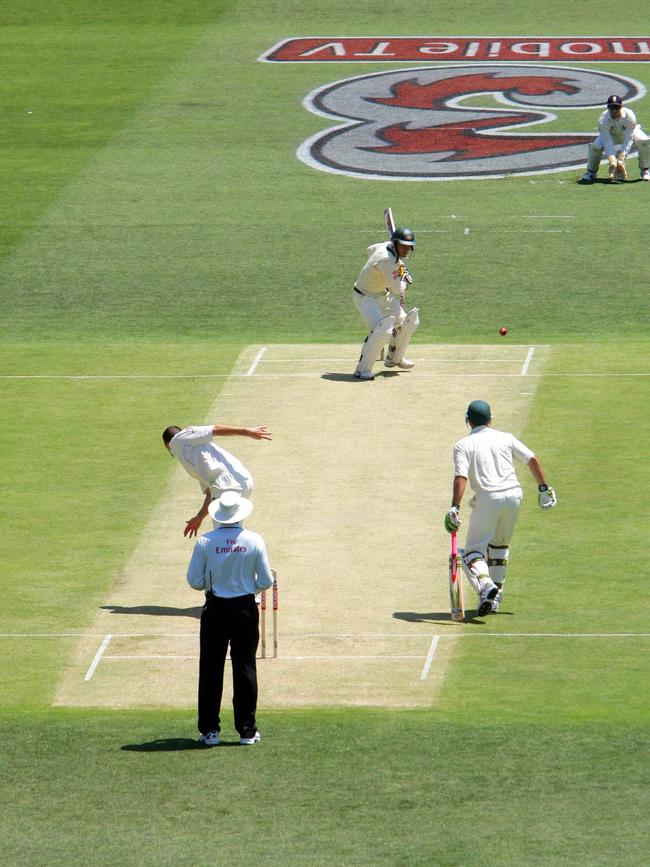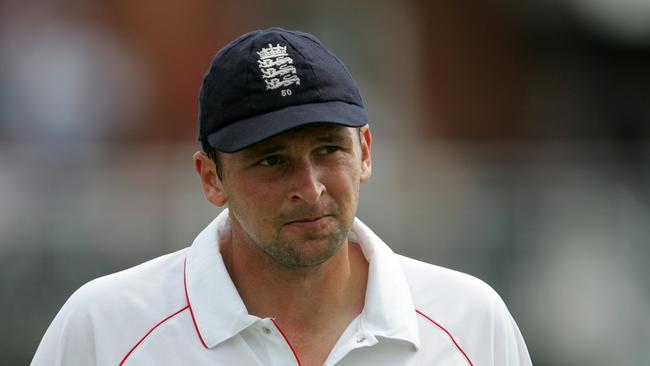Cheating? Steve Harmison’s hypocritical attack on Steve Smith

Or should we call it ball management. Or ball manipulation. Anything but cheating — which is apparently something only the colonials do.
Harmison, of course, was part of the England team that won the 2005 Ashes, taking Australia apart with reverse swing in concert with Andrew Flintoff and Simon Jones.
It was only later that batsman Marcus Trescothick admitted he was sucking on mints and using his saliva to shine the ball in that series. Trescothick was England’s official ball-shiner and admitted he used Murray Mints to produce saliva that “when applied to the ball … enabled it to keep its shine for longer and therefore its swing”.
Sounds like cheating to me.

But now, in the wake of Australia reclaiming the Ashes with victory in the Old Trafford Test, Harmison has taken to throwing stones in his glass house.
Smith, he says, is a cheat and will always be remembered for the Cape Town scandal.
“I don’t think you can forgive him,” Harmison said. “When you’re known as a cheat — and he is, I’m not going to sugar-coat it, the three guys cheated — that’s on your CV. You’re marked and you take it to your grave. Whatever Steve Smith does, he’ll always be remembered for what happened in South Africa.”
Once you have recovered from the staggering hypocrisy, it’s worth considering a couple of points.

First, cricketers have been pushing the boundaries of legality since the invention of the game to get an advantage with the ball. Everything from bottle tops, pen knives and sharp fingernails have been used to scuff up one side of the ball. And various concoctions of lip salve, sunscreen, sweat and saliva have helped to shine the other.
India’s Rahul Dravid, for instance, was fined half his match fee for rubbing a cough lozenge on a ball during a one-day game against Zimbabwe in 2004.
South African skipper Faf du Plessis copped a fine for using a mint to shine the ball during a Test in Hobart in 2016.
Without wishing to excuse such behaviour, it is certainly not the exclusive preserve of the Australians.

Second, although we may never know exactly what went on in Cape Town — and who did what with sandpaper — it seems clear that Smith was guilty of merely not stopping it. Others were actually involved in the tampering — Smith didn’t intervene and then, as captain, accepted his responsibility.
He then graciously accepted his punishment. The 12-month ban was far more severe than any punishment handed to Trescothick, or Dravid or du Plessis, but he copped it.
He has since returned and let his bat do the talking, confirming his status as the best Test batsman in the world.
He is head and shoulders above any other player involved in this Ashes series and is almost single-handedly responsible for Australia retaining its grip on the urn.
Harmison’s mean-spirited criticism of Smith is entirely inappropriate. He needs to accept that Smith made a mistake, accepted his responsibility, took his punishment and moved on to become one of the greatest the game has seen.



Former England paceman Steve Harmison has taken a big mouthful of sour grapes and launched an attack on Steve Smith over the Cape Town ball-tampering scandal. We probably should take a bit of notice of him — he knows a thing or two about cheating.